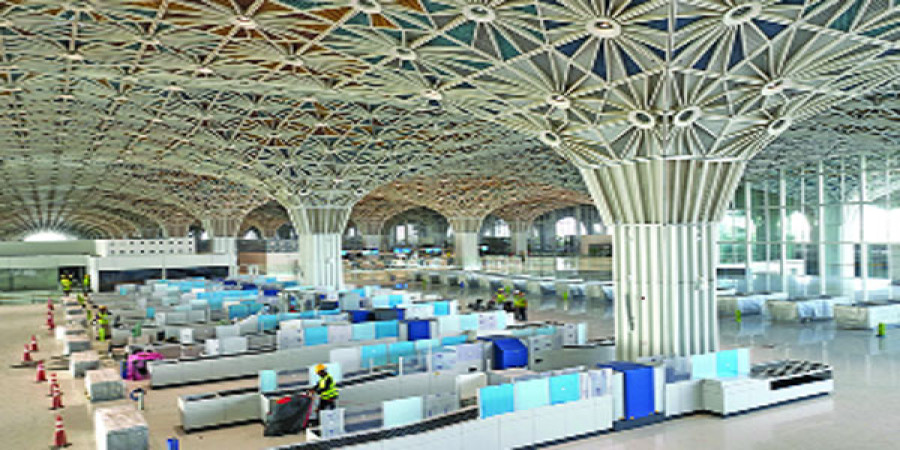
ছবি: Photo: Collected
The Shahjalal International Airport Expansion (Phase 1) project, under the Civil Aviation Authority of Bangladesh (CAAB) and the Ministry of Civil Aviation and Tourism, has come under scrutiny for alleged irregularities amounting to BDT 1.25 billion. According to an audit by the Comptroller and Auditor General's office, key decisions and contract modifications in the project raised significant concerns over financial and procedural integrity.
The project involved a contract worth BDT 205.99 billion. The tender initially mandated the use of Screw Steel Piles (SSP) for foundational work, a requirement that was later removed after the contract had been awarded. This sequence of events, coupled with the non-compliance to standard practices and the alleged financial benefits extended to contractors, has been flagged as a major financial loss to the state.
A tripartite meeting involving the project authority, the Ministry, JICA, and the Economic Relations Division (ERD) in 2017 concluded that SSP would be used to expedite construction. This decision was made without conducting adequate feasibility studies or actual ground tests, relying instead on assessments of physical land conditions. The inclusion of SSP in the Bill of Quantities (BoQ) and tender documents subsequently narrowed competition and limited the number of bidders. The technical evaluation committee later recommended awarding the contract to Aviation Dhaka Consortium (ADC), the sole bidder, leading to a Letter of Acceptance on December 17, 2019.
Despite the inclusion of SSP in the tender specifications, the project supervisory consultant Nippon Koei Ltd. had previously communicated in 2019 that SSP was unsuitable for Bangladeshi soil conditions. The consultant highlighted that SSP had never been utilized in similar projects in Bangladesh and recommended the use of bored piles instead. However, these concerns were not addressed prior to finalizing the contract.
Following the contract's execution, the project authority ultimately replaced SSP with bored piles due to their suitability for local soil conditions. This change, made under Contract Clause 13.7 and 20, resulted in the reduction of the contract price and subsequent reimbursement of BDT 1.25 billion to the contractor as omission costs. Despite the reduction in the project’s overall cost, the omission cost reimbursement to the contractor has been flagged as financially unjustified and indicative of preferential treatment.
The project documents, including the tripartite meeting minutes, tender evaluation reports, consultant recommendations, variation proposals, and decisions by the Project Steering Committee and CAAB Board, reveal several discrepancies. Notably, the Public Procurement Rules (PPR) 2008, which mandate investigation of irregularities or doubts in project activities, were not adhered to.
The allegations point to collusion among project officials and contractors to facilitate financial benefits, with the SSP requirement initially serving as a means to limit competition and favor the selected contractor. The Comptroller and Auditor General's audit has highlighted these irregularities, which have been reported to stakeholders, including JICA, the Ministry, CAAB, and the Project Director's office. However, no actions have been taken against those involved.
The audit findings raise serious questions about governance and accountability in one of the country's most significant infrastructure projects, with calls for further investigation and necessary corrective measures to prevent similar issues in future public works projects.
repoter






